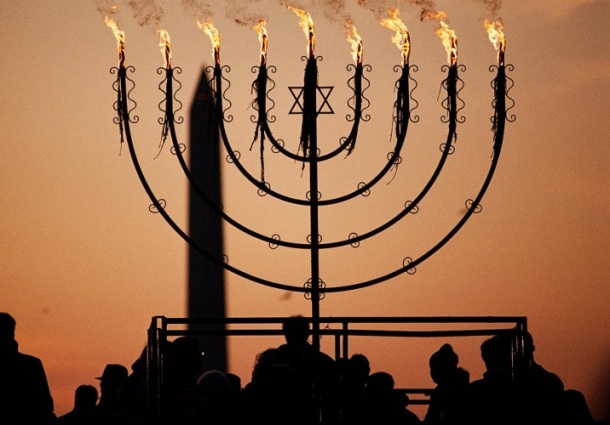BS”D
I’d like to start this post by wishing you a light-filled Hanukkah and by asking G-d, “What in the hell is going on?”
In the past week, I’ve had to say “Baruch Dayan haEmes” (Blessed is the True Judge – said upon hearing that someone has passed away, or other especially bad news, G-d forbid) four times. Two of these situations were especially horrible and shocking, Hashem have mercy. Here we are celebrating the Festival of Lights, and from the Source of Light Himself seems to be coming a whole lot of darkness.
When, G-d forbid, a tragedy occurs, our Sages instruct us to “take heart”. To take our emotions and direct them inward, re-framing for ourselves where we’re holding in the grand scheme of things.
In the beginning of this week’s Torah portion, Mikeitz, Yosef, who has been brought against his will to the darkest place on earth, is referred to by one of Pharoah’s officials as “naar, Ivri, eved”. Literally translated, these words mean “youth, Hebrew, slave”.
A deeper look at each word reveals a powerful mandate for us, sojourners like Yosef in this often-dark world.
“Naar” can imply “fool”.
The root meaning of the word “Ivri/Hebrew” is “otherness”, “opposite”, or even “contrary”.
“Eved” comes from the root word meaning “work” or “service”.
When darkness comes to us in one of its many guises, we are being given work to do. And this is our job: to proceed in a divinely foolish manner and act contrary to the darkness. To affirm and continue life in the face of loss. To channel paralyzing pain into constructive action. To seek G-d’s Purpose in seeming chaos.
The junkie who gets clean and uses her experiences to counsel others out of the pit of addiction. The couple who will not give up trying to build their family despite devastating fertility problems. The bereaved son who uses his inheritance to start a charity in his deceased father’s memory.
According to Chassidic teachings, the main accomplishment of Hanukkah is “to make the darkness shine” – not just to add light to the darkness, but to make the darkness itself a source of illumination.
We do this by defying it.
Each one of us should reach the level of Yosef in next week’s parsha, when he declares to his brothers who had betrayed him so horribly, “And now, you did not send me here, but God, and He made me a father to Pharaoh, a lord over all his household, and a ruler over the entire land of Egypt” – we should see that no matter how it appears, even the darkness is from G-d, and that it is ultimately for our profit.
We should merit the ultimate profit, to see the menorah lit in the rebuilt Bais haMikdash this Hanukkah, with the coming of Moshiach.

http://biblesuite.com/hebrew/5288.htm
Naar, origin uncertain, meaning child, youth, young man servant, hence foolish = childlike
Nothing about “other” in Strong’s concordance nor in any other source I can find. What source are you using for this translation?
When I write “deeper meanings”, I’m referring to interpretations of the word-concepts according to Rashi and to Chassidus, not to alternate definitions.
Everything in this blog comes from Chabad Chassidus.